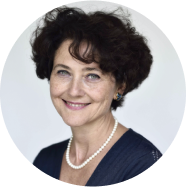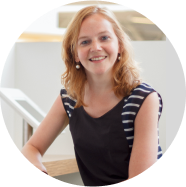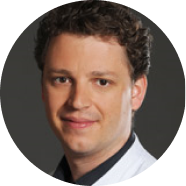Catalyzing the development of breakthroughs in the life sciences
Science:
We are fueling progress in the fields of the life sciences to provide pioneering and sustainable solutions for a growing and ageing population.
Catalyzing the development of breakthroughs in the life sciences

Our approach:
Our Objective
Bayer Foundation’s Science Awards strive to honor outstanding achievements in science and education from established senior scientists, as well, as from young future scientific stars. All awards are subject to nomination by senior members of scientific institutions or by a Bayer R&D unit. Self-nominations are not eligible. Winners are selected by the Foundation Council and the members of the Board of the Bayer Foundation.
1. Awarding renowned scientists:
Otto Bayer Award for pioneering scientific research
With the Otto Bayer Award, Bayer honors outstanding scientists from German-speaking countries for their pioneering research in the field of chemistry, biochemistry or biology. The winner receives prize money of € 75,000. The award is named after the renowned Dr. Otto Bayer who invented polyurethane in the year 1937.
Outstanding scientists from German-speaking countries.
Self-nominations are not eligible
Proven record of conducting frontier research in chemistry, biochemistry or biology.
A call for nomination is published in spring of every second year alternating with the Hansen Family Award. The winner receives the prize in a festive ceremony of the yearly hold Bayer Foundation Day.
STATUS: Award currently closed.

Dr. Tobias Erb
Dr. Tobias Erb (MPI for Terrestrial Microbiology, Marburg, Germany) won the Otto Bayer Award in 2018 for his outstanding achievements in the field of synthetic biology. By using synthetic organic chemistry methods, he and his team members created new biological metabolic pathways (e.g. synthetic photosynthesis) on the drawing board, thereby developing biology into a synthetic discipline.

Professor Dirk Trauner
Professor Dirk Trauner (Ludwig-Maximilians-University, Munich, Germany) won the Otto Bayer Award in 2016 for his pioneering contributions in photopharmacology and chemical optogenetics. With his team he developed photo switches of biologically active compounds which in turn have the potential to be used as chemotherapy agents.

Professor Frédéric Merkt
Professor Frédéric Merkt (ETH Zurich, SZwitzerland) won the Otto Bayer Award in 2014 for his outstanding contributions in molecular spectroscopy. With his research he enabled the characterization of activated atoms and molecules and provided novel insights into the basic chemical behavior of molecules.
Hansen Family Award for Medical Research
Alternating with the Otto Bayer Award, the Hansen Family Award (every second year) honors world leading scientists from German-speaking countries for cutting-edge achievements in medical sciences. This award, also with a prize money of € 75,000, was named after the former Bayer CEO Dr. Kurt Hansen, a trained chemist who was a firm believer in the power of scientific talents for the long-term success of Bayer AG.
Outstanding scientists in German-speaking countries
Candidates must have a proven record of outstanding excellence in science with the potential to drive innovation in medicine.
Candidates should be actively researching medical sciences, medicine or related field.
All awards are subject to nomination by senior members of scientific institutions or by a Bayer R&D unit.
A call for nomination is published in spring of every second year alternating with the Otto Bayer Award. The winner receives the prize in a festive ceremony of the yearly hold Bayer Foundation Day.
STATUS: Open for Nominations 30th March - 3rd May 2021.

Professor Edith Heard
Professor Edith Heard received the Hansen Family Award in 2019 for groundbreaking insights and paradigm shifting discoveries in the area of epigenetics. She and her team contributes significantly to our understanding of the interplay between chromatin structure and gene activity, which is essential for the development of new drugs aimed at treating cancer and other diseases.

Professor Jens Brüning
Professor Jens Brüning (MPI for Metabolism Research, Cologne, Germany) and Professor Matthias H. Tschöp (Helmholtz Centre, Munich, Germany) received the Hansen Family Award in 2017 for their discoveries in the area of diabetes and obesity. Both scientists contributed with their research to the understanding of metabolic and hormone-related pathways and signals in the human body and thereby to urgently needed new prevention and treatment options of diabetes.

Professor Emmanuelle Charpentier
Professor Emmanuelle Charpentier (MPI for Infection Biology, Berlin, Germany) received the Hansen Family Award in 2015 for her development of a revolutionary technology for editing genomes. With her “molecular scissors” system she and her team provided researchers world-wide with a tool to locate defective gene sequences, remove them and insert healthy sections.
2. Awarding young scientific talents:
Early Excellence in Science Awards
Bayer’s Early Excellence in Science Awards has four categories, namely Biology, Chemistry, Medical Sciences and Data Sciences in Life Sciences. With these awards, Bayer honors talented young scientists (for up to 5 years following completion of their PhD) from all over the world for pioneering research achievements. In each category the awardees receive prize money of € 10,000.
Young, outstanding scientists working worldwide.
Max. 5 years following the PhD completion:
- Scientific achievements in the early stage of their career;
- Proven record of scientific excellence
- In (one of) the following categories:
*Chemistry; *Biology; *Medical sciences; *Data science in life sciences.
A call for nomination is published in spring of every year with the Otto Bayer Award or Family Hansen Award in parallel. The winner receives the prize in a festive ceremony of the yearly hold Bayer Foundation Day.
STATUS: Open for Nominations 30th March - 3rd May 2021.

Winner of EESA for Medical Sciences
Dr. Susanne van Veluw
Dr. Susanne van Veluw (Harvard Medical School, Boston, USA) for developing and applying cutting-edge imaging techniques to visualize hitherto undetectable micro infarct lesions in the human brain.

Winner of EESA for Chemistry
Dr. Christina Woo
Dr. Christina Woo (Harvard University, Boston, USA) for her pioneering research on the role of small molecules influencing protein function and biological signaling using large-scale chemical biology approaches.

Winner of EESA for Biology
Dr. Julian Stingele
Dr. Julian Stingele (Ludwig-Maximilians-University, Munich, Germany) for his discovery of an entirely unexpected DNA repair pathway, which is crucially important to prevent ageing and tumorigenesis.

Winner of EESA for Medical Sciences
Dr. Kathryn Susan Hayward
Dr. Kathryn Susan Hayward (University of British Colombia, Australia) for her impact on the field of stroke rehabilitation and recovery focused on individuals with significant loss of arm and hand function in early post-stroke.

Winner of EESA for Chemistry
Dr. Keary M. Engle
Dr. Keary M. Engle (Scripps Research Institute, La Jolla, USA) for his unparalleled contributions at the interface of organometallic chemistry, organic synthesis and catalysis – particularly in the area of effective syntheses of small molecules by smart catalysis.

Winner of EESA for Biology
Dr. Christoph Engel
Dr. Christoph Engel (University of Regensburg, Germany) for his outstanding research providing the molecular basis for ribosomal RNA synthesis by RNA polymerase in eukaryotic cells.
The Bayer Thrombosis Research Award
The Bayer Thrombosis Research Award is presented every two years with prize money of € 30,000 to a scientist in a German-speaking country whose work focuses on basic and applied clinical research in the field of thrombosis.
Scientists working in German-speaking countries with a focus on thrombosis.
Proof of work focus on basic and clinical research into thrombosis, particularly on the diagnosis, prevention and therapy of thromboembolic diseases, including epidemiology and health policy approaches.
Suitable candidates should have completed their PhD or MD no longer than 5 years ago and they either should be working in a German speaking country or have completed major parts of scientific training in the German-speaking world.
The winner receives the awards at a festive ceremony held at Bayer Pharmaceuticals.
STATUS: Award currently closed.

Dr. Changjun Yin
Dr. Changjun Yin (Ludwig-Maximilians-University, Munich, Germany) in recognition of his research on Atherosclerosis and Alzheimer’s disease (AD) as inflammatory conditions with high risks to develop thrombosis-related diseases. Together with his research group he bridged basic science using animal models and human translational studies and thereby opened a new avenue to treat patients afflicted with atherosclerosis and AD.

Dr. David Seiffge
Dr. David Seiffge (University Hospital, Basel, Switzerland) for his applied clinical research on non-vitamin-K-dependent oral anticoagulants (NOAKs) in patients with acute stroke. Together with his team he was able to demonstrate that patients can be treated with NOAKs already shortly after an acute stroke and thereby significantly increase the success of the acute therapy of this life-threatening disease.

Dr. Markus Bender
Dr. Markus Bender (Julius-Maximilians-Universität, Würzburg, Germany) for his pioneering work on a rare genetic condition causing severe wound bleeding in children. With his research team he discovered that a mutation in the gene encoding the protein profilin-1 prevents blood platelets to take their usual disc form and thereby lose the ability to contribute to clot formation.
Our Objective:
We believe that science is the basis with which we can enable societal progression as we face challenges in health and nutrition due to an ever increasing and ageing global population.
By identifying and nurturing brilliant young minds, we seek to enhance the impact of the next generation of outstanding talents in science and STEM-education, as well as apprentices and young professionals in the Life Science Industries.
Our fellowships specifically aim to:
foster interdisciplinary interaction and collaborations across borders and organizations
and
provide unique opportunities for personal and professional development
1. Foundation Fellowships for academic scientific research
We offer three fellowships in the Life Sciences for MSc, PhD and medical students that are designed to enhance existing study programs by providing additional funding for international placements, that are complimentary to current or future scientific studies.
Otto Bayer Fellowships in Drug Discovery
For students from all fields of natural science, pharmacy, and data science with fundamental or applied studies with relevance to the pharmaceutical and consumer healthcare (over-the-counter) industries.
Jeff Schell Fellowships for Agricultural Science
For students from all fields of natural science and data science with fundamental or applied studies with relevance to the Crop Science industry.
Carl Duisberg Fellowships for Medical Sciences
For students in the fields of human and veterinary medicine, medical engineering, applied medical sciences and public health. Applications of data science in medicine are eligible.
Please find our guidelines for 2021 here.
Contact: bayer.fellowship@bayer.com
2. Foundation Fellowships for STEM education
We offer fellowships for internships, research projects, training and science communication relating to STEM-education.
Kurt Hansen Fellowships for STEM-Education
For:
• Trainee teachers or students of pedagogy (postgraduates) with a focus on STEM subjects
• Newly qualified teachers (< 3 years) with a primary focus on STEM subjects
• Grundschule or Förderschule teachers seeking to enhance their capacity and knowledge regarding STEM education.
This fellowship is only available to applicants working or studying in Germany.
Please find our guidelines for 2021 here (German only).
Contact: bayer.fellowship@bayer.com
3. Foundation Fellowships for apprentices and young professionals
We offer fellowships for apprentices or young professionals without a university education working in the Life Science Industry (maximum 5 years since completion of apprenticeship), that provide additional funding for activities that are complimentary to current studies or work.
Hermann Strenger Fellowships
Applicants must be working or studying in the Life Science Industry (pharmaceuticals, crop science or consumer healthcare) in the states of NRW, Hessen and Berlin.
You can find our guideline for 2021 here (German only).
Contact: bayer.fellowship@bayer.com
4. Stipends for the Lindau Nobel Laureate Meeting
The Lindau Nobel Laureate Meeting is a unique opportunity for the world elite in science and academia to interact and exchange with the brightest talents in science and medicine − a springboard for global knowledge exchange.
Each year, Bayer Foundation supports 20 young researchers from around the world to attend the conference as “Bayer Lindau Fellows.” In addition, the Foundation organizes science dialogue evenings to exchange ideas and scientific spirit between fellows and senior industry scientists.
The application process is managed by the Lindau Nobel Foundation independently of Bayer Foundation.
For more information please see here.
5. Christiane Nüsslein-Volhard-Foundation Stipends
Founded in 2004, the Christiane Nüsslein-Volhard-Foundation for the promotion of science and research, supports talented young women with children in the field of experimental natural sciences and medicine. Each year, Bayer Foundation funds two fellowships for either doctoral students or postdoctoral researchers working in a German research institute or university.
Funds are intended to help reduce the workload of household chores and childcare, and therefore regain the time and flexibility required to maintain a high standard of research despite the additional demands of parenthood. The ambition is to prevent the loss of outstanding talent and to increase the number of highly qualified women undertaking high quality research in Germany.
The application process in managed by the CNV-Foundation independently of Bayer Foundation.
For more information please see here.
Applications can be submitted from September 1st until November 30th of each calendar year.
Our Objective:
At Bayer Foundation, we firmly believe that science provides answers to future challenges. As such, we strive to spark the joy of science and technology among children and help pave the way for tomorrow’s scientific pioneers.
Our strategy:
We are supporting schools and teachers to help take science education to new heights with our ecosystem of Baylab student laboratories as well as through a school funding program.
We are supporting schools and teachers to help take science education to new heights

Baylab student laboratories
The Baylab student laboratories offer an exciting addition to school education, promoting the fun of discovery of science. This is done through supplementary school lessons; teacher support programs (in fields such as pharmaceutical research and gene editing); as well as special integration classes for inclusive participation. Please visit the Baylab website for more information about local offerings.
Bayer Science@School Program
We are supporting schools and teachers to help take science education to new heights.
Application criteria:
• Projects from teachers at all types of school (from elementary school to vocational school)
• Life Science subjects with relevance to the Bayer Foundation: biology, chemistry, health, nutrition, agriculture and medicine
• Projects with a specific goal, clear objectives, and a defined timeline and budget
• High interest for students
• School must be within 50 km of a Bayer site
• Maximum value of application 20,000 €
What cannot be included:
• Projects that consist primarily of IT costs
• Infrastructure costs
• Participation in one-off events
• Personnel costs
We look forward to receiving your application!
If you want to learn more about how Bayer supports science education, especially for kids, the Science@Home with Bayer series could be interesting for you. Please find more information here.
Our Objective:
There is no innovation without collaboration. This is why Bayer Foundation thrives on building and curating ecosystems with partners across the world for a world with Health for All and Hunger for None.
Falling Walls:
Bayer Foundation supports a number of Falling Walls programs, such as the Berlin Science Week, engaging the science community with the public or Falling Walls Lab, a global pitching contest for scientific visionaries from all fields. The vision of Falling Walls is to shape the future of humanity by impact-oriented ideas and discoveries, driven by the dedication for creating breakthroughs across borders and disciplines.
Humboldt University:
Since 2010, the cooperation between Bayer Foundation and Humboldt University empowers children and teenagers to learn about scientific research and STEM subjects. The aim is to generate fun experiences and interest in and for science, especially among students who have shown little interest in these topics so far. Many of the children and teenagers that participate get insights into research methodology in science and industry for the first time. Together with their teachers and the help of trained personnel, students get the opportunity to work on their own scientific projects based on innovative learning methods.
Please feel free to reach out if you have further questions or comments about our awards.



